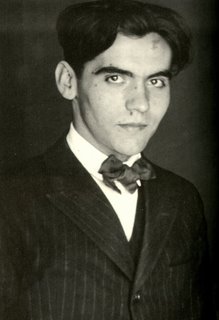
It is really hot. It is really humid. Everything is sticky despite the car’s air conditioning. The roads are filled with green glare but otherwise seem empty. The few other cars seem to have diplomatic plates and their windows are rolled up tight. Our maps show fictitious roads that have no apparent entrances. There are no signs anywhere. At every intersection we roll down the windows to taste a blast of heat and to inquire if this is la Ruta, la Careterra Central. It is not a surprise that we sometimes retrace our voyage. It is not a surprise that there are people waiting at every intersection. Waiting for a ride. Or just waiting. Napping. It is also not a surprise when people appear from nowhere to sell us chocolate and coconut and bananas as the road climbs high and steep into the hot Sierra Maestra.
Our wizened hitchhiker passenger tells us incorrectly that Fidel has never been all the way to Baracoa, only Columbus and him. Yes, we will take him to Guantanamo or even Santiago if he’d like. We don’t bother to ask him if he thinks Baracoa resembles Macondo. It’s too hot.
Every town has its row of revolutionary slogan signs, signs about La Battalla de Ideas, its row of heroes, from Marti forward, its freshly painted Communist party office. Every TV has the same channel, and the channel shows Mesa Redonda, in which El Maximo Lider patiently answers the expected questions, and Super Bloqueo, in which we learn that everything, including the lack of toilet paper, vegetables and deodorant is Bush’s fault, but that, don’t worry, it’s going well, thank you very much.
It’s hard to believe this, that it’s going well. The chickens all seem to be skinny and meatless. There are entirely too few fat people. The shelves are frequently empty. The island is surrounded by the sea, but the last fish seems to have been caught by Papa Hemingway. Thank God a bottle of Havana Club rum is $3.50 and beer, Cristal or Buccanero, is a buck. But a buck is a huge investment in intoxication if your weekly take home is $12. Moneda nacional is worthless; and hard-to-get divisa requires excursions into the parallel, illegal economy, the one where lobsters and cognac and boxes of cigars and steaks fall off trucks and fly mysteriously onto your table.
If I start a conversation about how hard things seem, I’ll be told how we’ve resisted the empire and its intrigues, that medical care and education are abundant, and that despite appearances things are really great. If I say things are great, I’ll be told how bad it is here, and how much better it would be to swim through the shark infested sea to Miami, to stop working as an engineer, and to find part time work in valet parking on Calle Ocho. If I mention El Duque, I get told about how Los Industriales beat the Baltimore Orioles. One thing’s certain. We need a bottle of rum so we can hang out and discuss all of this. A bottle between four or five people won’t fill the afternoon, though it may bring some excitement and drama to the game of dominos and distract us from the oppressive heat. Then we'll see if we can get another.
At night in all of Havana except, apparently, the Cohiba Melia hotel, there’s no real air conditioning. Stay up late so that things will cool off slightly. Then bring the heavy, turbo Chinese fan over to the edge of the bed, turn it on, and lie down so it’s less than a foot away. This is how to be comfortable in Havana. Drinking a lot before sleeping, contrary to popular opinion, only makes one hotter. Interrupting the night with cold showers (are there other kinds in Havana?) is a good strategy.
The taxi driver wants to know where we’re from. He knows we're not Cuban because we have sunglasses. We tell him, in slang, La Yuma. No, we’re not Canadian, we mean the real, original Yuma. What do I do for a living? I’m a writer. Good, he says, pocketing the change as if I were Hemingway himself fat and drunk from his latest royalty check, then you can afford this $5 tip. He has a point, I concede it.
Right up there with the crazed delusion that the Iraqis would welcome US troops with flowers is that other old bugaboo, that when Fidel dies, Cuba will suddenly embrace capitalism and, even crazier, the US has a role to play in that. What a joke. A 50 year blockade, migration of everybody who could possibly float or swim to Florida, more than a hundred attempts on Fidel’s life not including the exploding Cohibas, restrictions on visiting for relatives from Miami, restrictions on how many dollars can be sent to those still on the Wonder Island, the Bay of Pigs, the fly overs, the CIA, the constant propaganda, the presence of the US Interest Section on the Malecon. A million insults large and small. Anybody who believes this myth is just crazy.
If the US wants to see a "free" Cuba, all it has to do is lift the blockade.
In the meanwhile, the exoticism of the pastel 50's cars, the beauty of the falling down buildings in Centro and the Malecon, constantly replaying records from Buena Vista Social Club, and pouring down Mojitos at the Florida Bar and the Hotel Ingleterra is a very poor excuse for the love affair we should be having.









